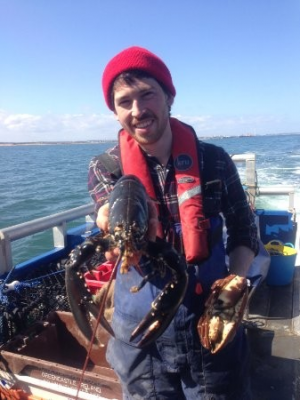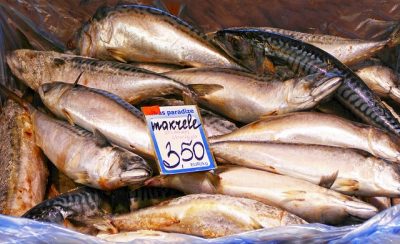The European Union is re-evaluating where it allocates subsidies that go to fisheries and fishers. These changes will come at a time when fish populations globally are expected to shrink and when developing a robust sustainability plan to grow fish stocks is essential.
However, some researchers fear that the EU, despite its best efforts to meet the Sustainable Development Goals of the United Nations, will backslide and provide subsidies that encourage overfishing.
A recently published paper in the ICES Journal of Marine Science tracked the evolution of fisheries subsidies in the EU over the past 20 years. The authors argued that although the EU has increased its provision of beneficial subsidies, it still needs to cull a great number of harmful ones.

Daniel Skerrit
What the EU has done in terms of fisheries subsidies in the past?
Every few years the EU evaluates its funding and financing to establish what it aims to achieve and improve. You get these steps in changes over time. The fundamental aim has always the same, which is to have sustainable fisheries that are economically viable, that support the fishers and provide food for European citizens. They have gradually tried to emphasize ecological and environmental sustainability.
On paper what the EU have done over the past 20 years is great. They’ve been slowly moving towards what you might think is a more sustainable fishing sector. But in reality, every iteration of this funding mechanism has failed to achieve the EU’s objective. The objective is to have fishing that is in line with ecosystem limits, that is sustainable. And that still isn’t the case. There’s been slow progress but they still aren’t achieving what they set out to achieve. That’s what made me want to write the paper.
Why was it important to do this retrospective now?
There’s a lot of talk in the European Parliament and the European Council about trying to bring back fisheries subsides that are demonstrably negative to marine ecosystems and fish stocks.
One of the issues that often arises when I talk about EU fisheries subsidies is that people think you can provide harmful subsidies if your fish stocks are sustainable. And even if that were true, the EU fish stocks still aren’t sustainable. There are still numerous fish stocks that are below this point that everyone seems to have agreed is the level of sustainability.

Freshly caught mackerel in a European market. Image by Wolfgang Eckert from Pixabay
What types of fisheries subsidies continue to cause harm to sustainability efforts?
Subsidies to modernize fishing vessels are one example. The objective might be to replace old engines on fishing vessels with newer, more fuel-efficient engines to reduce global warming. Great on paper, but what happens when you fit vessels with these more efficient engines is that they can fish further, and longer, they can fish more for the same fuel price. What you’re actually doing is making a more effective fish-killing machine. The difficulty with fish subsidies is the unintended consequences. The objective may be sustainability but the execution fails.
What recommendations would you make to the EU members as they decide where to allocate subsidies?
Don’t bring back subsidies you already got rid of. Don’t provide support or harmful subsidies to fisheries that are fishing on unsustainable stocks, and third, remove some of the most egregious subsidies — like fuel tax subsidies — and replace them with investment in things like marine protected areas or fisheries management.
What do you want EU citizens and stakeholders in the fisheries sector to take away from this paper?
We still believe that the fishing sector and the fishing community should be supported but we think that there are better ways to do that; ways that have a long-term vision
The problem with harmful fisheries subsidies is that although they might support job security and raise income, they’re really shortsighted. They undermine a renewable resource that is technically owned by everyone. Fishing can’t exist without the fish.
Tags: Daniel Skerritt, Europe, Faculty, fisheries management, IOF postdoctoral fellows, Rashid Sumaila, Subsidies